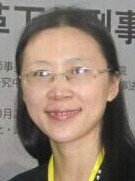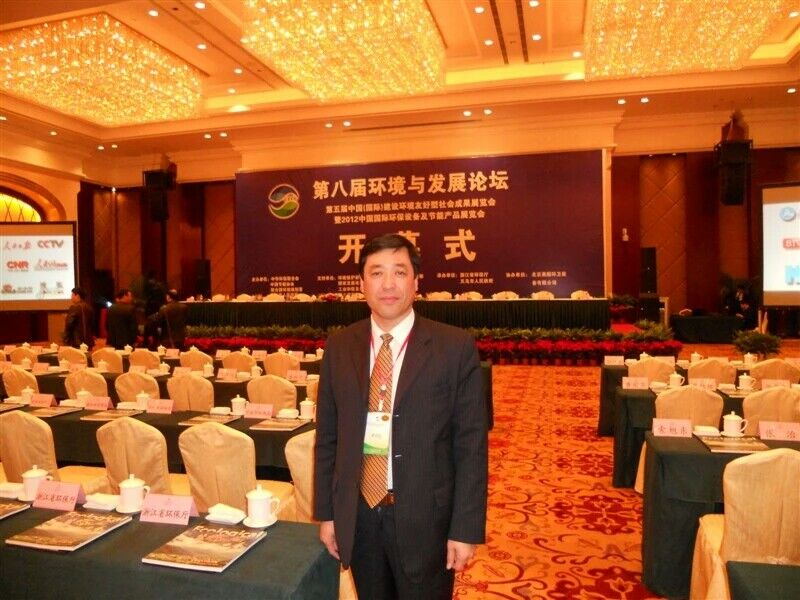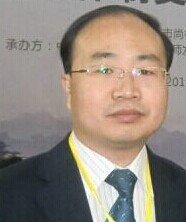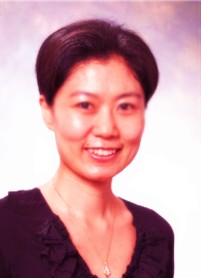Text
正文
The General Conference of the United Nations Educational, Scientific and Cultural Organization, meeting at New Delhi, from 5 November to 5 December 1956, at its ninth session, Being of the opinion that the surest guarantee for the preservation of monuments and works of the past rests in the respect and affection felt for them by. the peoples themselves, and persuaded that such feelings may be greatly strengthened by adequate measures inspired by the wish of Member States to develop science and international relations, Convinced that the feelings aroused by the contemplation and study of works of the past do much to foster mutual understanding between nations, and that it is therefore highly desirable to secure international co-operation with regard to them and to further, in every possible way, the fulfillment of their social mission, Considering that, while individual States are more directly concerned with the archaeological discoveries made on their territory, the international community as a whole is nevertheless the richer for such discoveries,
Having before it proposals concerning international principles applicable to archaeological excavations, which constitute item 9.4.3 on the agenda of the session,Having decided, at its eighth session, that these proposals should be regulated at the international level by way of a recommendation to Member States,
The General Conference recommends that Member States should bring the present Recommendation to the knowledge of authorities and organizations concerned with archaeological excavations and museums. The General Conference recommends that Member States should report to it, on dates and in a manner to be determined by it, on the action which they have taken to give effect to the present Recommendation.
I. Definitions
Archaeological excavations
1. For the purpose of the present Recommendation, by archaeological excavations is meant any research aimed at the discovery of objects of archaeological character, whether such research involves digging of the ground or systematic exploration of its surface or is carried out on the bed or in the sub-soil of inland or territorial waters of a Member State.
Property protected
2. The provisions of the present Recommendation apply to any remains, whose preservation is in the public interest from the point of view of history or art and architecture, each Member State being free to adopt the most appropriate criterion for assessing the public interest of objects found on its territory. In particular, the provisions of the present Recommendation should apply to any monuments and movable or immovable objects of archaeological interest considered in the widest sense.
3. The criterion adopted for assessing the public interest of archaeological remains might vary according to whether it is a question of the preservation of such property, or of the excavator's or finder's obligation to declare his discoveries.
(a) In the former case, the criterion based on preserving all objects originating before a certain date should be abandoned, and replaced by one whereby protection is extended to all objects belonging to a given period or of a minimum age fixed by law.
(b) In the latter case, each Member State should adopt far wider criteria, compelling the excavator or finder to declare any object, of archaeological character, whether -movable or immovable, which he may discover.
Archaeological excavations
1. For the purpose of the present Recommendation, by archaeological excavations is meant any research aimed at the discovery of objects of archaeological character, whether such research involves digging of the ground or systematic exploration of its surface or is carried out on the bed or in the sub-soil of inland or territorial waters of a Member State.
Property protected
2. The provisions of the present Recommendation apply to any remains, whose preservation is in the public interest from the point of view of history or art and architecture, each Member State being free to adopt the most appropriate criterion for assessing the public interest of objects found on its territory. In particular, the provisions of the present Recommendation should apply to any monuments and movable or immovable objects of archaeological interest considered in the widest sense.
3. The criterion adopted for assessing the public interest of archaeological remains might vary according to whether it is a question of the preservation of such property, or of the excavator's or finder's obligation to declare his discoveries.
(a) In the former case, the criterion based on preserving all objects originating before a certain date should be abandoned, and replaced by one whereby protection is extended to all objects belonging to a given period or of a minimum age fixed by law.
(b) In the latter case, each Member State should adopt far wider criteria, compelling the excavator or finder to declare any object, of archaeological character, whether -movable or immovable, which he may discover.
II. General principles
Protection of the archaeological heritage
4. Each Member State should ensure the protection of its archaeological heritage, taking fully into account problems arising in connexion with excavations, and in conformity with the provisions of the present Recommendation.
5. Each Member State should in particular:
(a) Make archaeological explorations and excavations subject to prior authorization by the competent authority;
(b) Oblige any person finding archaeological remains to declare them at the earliest possible date to the competent authority;
(c) Impose penalties for the infringement of these regulations;
(d) Make undeclared objects subject to confiscation;
(e) Define the legal status of the archaeological sub-soil and, where State ownership of the said sub-soil is recognized, specifically mention the fact in its legislation;
(f) Consider classifying as historical monuments the essential elements of its archaeological heritage.
Protecting body: archaeological excavations
6. Although differences of tradition and unequal financial resources make it impossible for all Member States to adopt a uniform system of organization in the administrative services responsible for excavations, certain common principles should nevertheless apply to all national archaeological services
(a) The archaeological service should, so far as possible, be a central State administration-or at any rate an organization provided by law with the necessary means for carrying out any emergency measures that may be required. In addition to the general administration of archaeological work, this service should co-operate with research institutes and universities in the technical training of excavators. This body should also set up a central documentation, including maps, of its movable and immovable monuments and additional documentation for every important museum or ceramic or iconographic collection, etc.
(b) Steps should be taken to ensure in particular the regular provision of funds:
(i) to administer the services in a satisfactory manner;
(ii) to carry out a programme of work proportionate to the archaeological resources of the country, including scientific publications ;
(iii) to exercise control over accidental discoveries;
(iv) to provide for the upkeep of excavation sites and monuments.
7. Careful supervision should be exercised by each Member State over the restoration of archaeological remains and objects discovered.
8. Prior approval should be obtained from the competent authority for the removal of any monuments, which ought to be preserved in situ.
9. Each Member State should consider maintaining untouched, partially or totally, a certain number of archaeological sites of different periods in order that their excavation may benefit from improved techniques and more advanced archaeological knowledge. On each of the larger sites now being excavated, in so far as the nature of the land permits, well defined `witness' areas might be left unexcavated in several places in order to allow for eventual verification of the stratigraphy and archaeological composition of the site.
Formation of central and regional collections
10. In as much as archaeology is a comparative science, account should be taken, in the setting up and organizing of museums and reserve collections, of the need for facilitating the work of comparison as much as possible. For this purpose, central and regional collections might be formed or, in exceptional cases, local collections on particularly important archaeological sites-in preference to small scattered collections, accessible to comparatively few people. These establishments should command, on a permanent basis, the administrative facilities and scientific staff necessary to ensure the preservation of the exhibits.
11. On important archaeological sites, a small exhibit of an educational nature-possibly a museum-should be set up to convey to visitors the interest of the archaeological remains.
Education of the public
12. The competent authority should initiate educational measures in order to arouse and develop respect and affection for the remains of the past by the teaching of history, the participation of students in certain excavations, the publication in the press of archaeological information supplied by recognized specialists, the organization of guided tours, exhibitions and lectures dealing with methods of excavation and results achieved, the clear display of archaeological sites explored and monuments discovered, and the publication of cheap and simply written monographs and guides. In order to encourage the public to visit these sites, Member States should make all necessary arrangements to facilitate access to them.
Protection of the archaeological heritage
4. Each Member State should ensure the protection of its archaeological heritage, taking fully into account problems arising in connexion with excavations, and in conformity with the provisions of the present Recommendation.
5. Each Member State should in particular:
(a) Make archaeological explorations and excavations subject to prior authorization by the competent authority;
(b) Oblige any person finding archaeological remains to declare them at the earliest possible date to the competent authority;
(c) Impose penalties for the infringement of these regulations;
(d) Make undeclared objects subject to confiscation;
(e) Define the legal status of the archaeological sub-soil and, where State ownership of the said sub-soil is recognized, specifically mention the fact in its legislation;
(f) Consider classifying as historical monuments the essential elements of its archaeological heritage.
Protecting body: archaeological excavations
6. Although differences of tradition and unequal financial resources make it impossible for all Member States to adopt a uniform system of organization in the administrative services responsible for excavations, certain common principles should nevertheless apply to all national archaeological services
(a) The archaeological service should, so far as possible, be a central State administration-or at any rate an organization provided by law with the necessary means for carrying out any emergency measures that may be required. In addition to the general administration of archaeological work, this service should co-operate with research institutes and universities in the technical training of excavators. This body should also set up a central documentation, including maps, of its movable and immovable monuments and additional documentation for every important museum or ceramic or iconographic collection, etc.
(b) Steps should be taken to ensure in particular the regular provision of funds:
(i) to administer the services in a satisfactory manner;
(ii) to carry out a programme of work proportionate to the archaeological resources of the country, including scientific publications ;
(iii) to exercise control over accidental discoveries;
(iv) to provide for the upkeep of excavation sites and monuments.
7. Careful supervision should be exercised by each Member State over the restoration of archaeological remains and objects discovered.
8. Prior approval should be obtained from the competent authority for the removal of any monuments, which ought to be preserved in situ.
9. Each Member State should consider maintaining untouched, partially or totally, a certain number of archaeological sites of different periods in order that their excavation may benefit from improved techniques and more advanced archaeological knowledge. On each of the larger sites now being excavated, in so far as the nature of the land permits, well defined `witness' areas might be left unexcavated in several places in order to allow for eventual verification of the stratigraphy and archaeological composition of the site.
Formation of central and regional collections
10. In as much as archaeology is a comparative science, account should be taken, in the setting up and organizing of museums and reserve collections, of the need for facilitating the work of comparison as much as possible. For this purpose, central and regional collections might be formed or, in exceptional cases, local collections on particularly important archaeological sites-in preference to small scattered collections, accessible to comparatively few people. These establishments should command, on a permanent basis, the administrative facilities and scientific staff necessary to ensure the preservation of the exhibits.
11. On important archaeological sites, a small exhibit of an educational nature-possibly a museum-should be set up to convey to visitors the interest of the archaeological remains.
Education of the public
12. The competent authority should initiate educational measures in order to arouse and develop respect and affection for the remains of the past by the teaching of history, the participation of students in certain excavations, the publication in the press of archaeological information supplied by recognized specialists, the organization of guided tours, exhibitions and lectures dealing with methods of excavation and results achieved, the clear display of archaeological sites explored and monuments discovered, and the publication of cheap and simply written monographs and guides. In order to encourage the public to visit these sites, Member States should make all necessary arrangements to facilitate access to them.
(A)考古機構應盡可能是中央國家部門——或者無論如何應是由法律賦予為執行可能需要的任何緊急措施所必需的手段的組織。除考古工作的一般管理外,該機構還應該同研究所及大學在發掘人員技術培訓方面進行合作。該機構還應編制可移動或不可移動紀念物的包括地圖在內的總文獻目錄,并為各個重要博物館或陶瓷或肖像收藏等,編制附加文獻目錄。
9.每一成員國應考慮對不同時期的一定數量考古遺址部分或整體地維持不動,以便可以利用改進的技術和更先進的考古知識進行發掘。在每個正在發掘的較大遺址,只要土地性質允許,可以保留幾處明確界定的“見證”區不進行發掘,以供最終證實遺址的地層和考古結構。
III. Regulations governing excavations and international collaboration
Authority to excavate granted to foreigners
13. Each Member State on whose territory excavations are to take place should lay down general rules governing the granting of excavation con-cessions, the conditions to be observed by the excavator, in particular as concerns the supervision exercised by the national authorities, the period of the concession, the reasons which may justify its withdrawal, the suspension of work, or its transfer from the authorized excavator to the national archaeological service.
14. The conditions imposed upon a foreign excavator should be those applicable to nationals. Consequently, the deed of concession should omit special stipulations which are not imperative.
International collaboration
15. In the higher interest of archaeology and of international collaboration, Member, States should encourage excavations by a liberal policy. They might allow qualified individuals or learned bodies, irrespective of nationality, to apply on an equal footing for the concession to excavate. Member States should encourage excavations carried out by joint missions of scientists from their own country and of archaeologists representing foreign institutions, or by international missions.
16. When a concession is granted to a foreign mission, the representative of the conceding State-if such be appointed-should, as far as possible, also be an archaeologist capable of helping the mission and collaborating with it.
17. Member States which lack the necessary resources for the organization of archaeological excavations in foreign countries should be accorded facilities for sending archaeologists to sites being worked by other Member States, with the consent of the director of excavations.
18. A Member State whose technical or other resources are insufficient for the scientific carrying out of an excavation should be able to call on the participation of foreign experts or on a foreign mission to undertake it.
Reciprocal guarantees
19. Authority to carry out excavations should be granted only to institutions represented by qualified archaeologists or to persons offering such unimpeachable scientific, moral and financial guarantees as to ensure that any excavations will be completed in accordance with the terms of the deed of concession and within the period laid down.
20. On the other hand, when authority to carry out excavations is granted to foreign archaeologists, it should guarantee them a period of work long enough, and conditions of security sufficient to facilitate their task and protect them from unjustified cancellation of the concession in the event, for instance, of their being obliged, for reasons recognized as valid, to interrupt their work for a given period of time.
Preservation of archaeological remains
21. The deed of concession should define the obligations of the excavator during and on completion of his work. The deed should, in particular, provide for guarding, maintenance and restoration of the site together with the conservation, during and on completion of his work, of objects and monuments uncovered. The deed should moreover indicate what help if any the excavator might expect from the conceding State in the discharge of his obligations should these prove too onerous.
Access to excavation sites
22. Qualified experts of any nationality should be allowed to visit a site before a report of the work is published and with the consent of the director of excavations, even during the work. This privilege should in no case jeopardize the excavator's scientific rights in his finds.
Assignment of finds
23. (a) Each Member State should clearly define the principles which hold good on its territory in regard to the disposal of finds from excavations.
(b) Finds should be used, in the first place, for building up, in the museums of the country in which excavations are carried out, complete collections fully representative of that country's civilization, history, art and architecture.
(c) With the main object of promoting archaeological studies through the distribution of original material, the conceding authority, after scientific publication, might consider allocating to the approved excavator a number of finds from his excavation, consisting of duplicates or, in a more general sense, of objects or groups of objects which can be released in view of their similarity to other objects from the same excavation. The return to the excavator' of objects resulting from excavations should always be subject to the condition that they be allocated within a specified period of time to scientific centers open to the public, with the proviso that if these conditions are not put into effect, or cease to be carried out, the released objects will be returned to the conceding authority.
(d) Temporary export of finds, excluding objects which are exceptionally fragile or of national importance, should be authorized on requests emanating from a scientific institution of public or private character if the study of these finds in the conceding State is not possible because of lack of bibliographical or scientific facilities, or is impeded by difficulties of access.
(e) Each Member State should consider ceding to, exchanging with, or depositing in foreign museums objects, which are not required in the national collections.
Scientific rights; rights and obligations of the excavator
24. (a) The conceding State should guarantee to the excavator scientific rights in his finds for a reasonable period.
(b) The conceding State should require the excavator to publish the results of his work within the period stipulated in the deed, or, failing such stipulations, within a reasonable period. This period should not exceed two years for the preliminary report. For a period of five years following the discovery, the competent archaeological authorities should undertake not to release the complete collection of finds, nor the relative scientific documentation, for detailed study, without the written authority of the excavator. Subject to the same conditions, these authorities should also prevent photographic or other reproduction of archaeological material still unpublished. In order to allow, should it be so desired, for simultaneous publication of the preliminary report in both countries, the excavator should, on demand, submit a copy of his text to these authorities.
(c) Scientific publications dealing with archaeological research and issued in a language which is not widely used should include a summary and, if possible, a list of contents and captions of illustrations translated into some more widely known language.
Documentation on excavations
25. Subject to the provisions set out in paragraph 24, the national archaeological services should, as far as possible, make their documentation and reserve collections of archaeological material readily available for inspection and study to excavators and qualified experts, especially those who have been granted a concession for a particular site or who wish to obtain one.
Regional meetings and scientific discussions
26. In order to facilitate the study of problems of common interest, Member States might, from time to time, convene regional meetings attended by representatives of the archaeological services of interested States. Similarly, each Member State might encourage excavators working on its soil to meet for scientific discussions.
Authority to excavate granted to foreigners
13. Each Member State on whose territory excavations are to take place should lay down general rules governing the granting of excavation con-cessions, the conditions to be observed by the excavator, in particular as concerns the supervision exercised by the national authorities, the period of the concession, the reasons which may justify its withdrawal, the suspension of work, or its transfer from the authorized excavator to the national archaeological service.
14. The conditions imposed upon a foreign excavator should be those applicable to nationals. Consequently, the deed of concession should omit special stipulations which are not imperative.
International collaboration
15. In the higher interest of archaeology and of international collaboration, Member, States should encourage excavations by a liberal policy. They might allow qualified individuals or learned bodies, irrespective of nationality, to apply on an equal footing for the concession to excavate. Member States should encourage excavations carried out by joint missions of scientists from their own country and of archaeologists representing foreign institutions, or by international missions.
16. When a concession is granted to a foreign mission, the representative of the conceding State-if such be appointed-should, as far as possible, also be an archaeologist capable of helping the mission and collaborating with it.
17. Member States which lack the necessary resources for the organization of archaeological excavations in foreign countries should be accorded facilities for sending archaeologists to sites being worked by other Member States, with the consent of the director of excavations.
18. A Member State whose technical or other resources are insufficient for the scientific carrying out of an excavation should be able to call on the participation of foreign experts or on a foreign mission to undertake it.
Reciprocal guarantees
19. Authority to carry out excavations should be granted only to institutions represented by qualified archaeologists or to persons offering such unimpeachable scientific, moral and financial guarantees as to ensure that any excavations will be completed in accordance with the terms of the deed of concession and within the period laid down.
20. On the other hand, when authority to carry out excavations is granted to foreign archaeologists, it should guarantee them a period of work long enough, and conditions of security sufficient to facilitate their task and protect them from unjustified cancellation of the concession in the event, for instance, of their being obliged, for reasons recognized as valid, to interrupt their work for a given period of time.
Preservation of archaeological remains
21. The deed of concession should define the obligations of the excavator during and on completion of his work. The deed should, in particular, provide for guarding, maintenance and restoration of the site together with the conservation, during and on completion of his work, of objects and monuments uncovered. The deed should moreover indicate what help if any the excavator might expect from the conceding State in the discharge of his obligations should these prove too onerous.
Access to excavation sites
22. Qualified experts of any nationality should be allowed to visit a site before a report of the work is published and with the consent of the director of excavations, even during the work. This privilege should in no case jeopardize the excavator's scientific rights in his finds.
Assignment of finds
23. (a) Each Member State should clearly define the principles which hold good on its territory in regard to the disposal of finds from excavations.
(b) Finds should be used, in the first place, for building up, in the museums of the country in which excavations are carried out, complete collections fully representative of that country's civilization, history, art and architecture.
(c) With the main object of promoting archaeological studies through the distribution of original material, the conceding authority, after scientific publication, might consider allocating to the approved excavator a number of finds from his excavation, consisting of duplicates or, in a more general sense, of objects or groups of objects which can be released in view of their similarity to other objects from the same excavation. The return to the excavator' of objects resulting from excavations should always be subject to the condition that they be allocated within a specified period of time to scientific centers open to the public, with the proviso that if these conditions are not put into effect, or cease to be carried out, the released objects will be returned to the conceding authority.
(d) Temporary export of finds, excluding objects which are exceptionally fragile or of national importance, should be authorized on requests emanating from a scientific institution of public or private character if the study of these finds in the conceding State is not possible because of lack of bibliographical or scientific facilities, or is impeded by difficulties of access.
(e) Each Member State should consider ceding to, exchanging with, or depositing in foreign museums objects, which are not required in the national collections.
Scientific rights; rights and obligations of the excavator
24. (a) The conceding State should guarantee to the excavator scientific rights in his finds for a reasonable period.
(b) The conceding State should require the excavator to publish the results of his work within the period stipulated in the deed, or, failing such stipulations, within a reasonable period. This period should not exceed two years for the preliminary report. For a period of five years following the discovery, the competent archaeological authorities should undertake not to release the complete collection of finds, nor the relative scientific documentation, for detailed study, without the written authority of the excavator. Subject to the same conditions, these authorities should also prevent photographic or other reproduction of archaeological material still unpublished. In order to allow, should it be so desired, for simultaneous publication of the preliminary report in both countries, the excavator should, on demand, submit a copy of his text to these authorities.
(c) Scientific publications dealing with archaeological research and issued in a language which is not widely used should include a summary and, if possible, a list of contents and captions of illustrations translated into some more widely known language.
Documentation on excavations
25. Subject to the provisions set out in paragraph 24, the national archaeological services should, as far as possible, make their documentation and reserve collections of archaeological material readily available for inspection and study to excavators and qualified experts, especially those who have been granted a concession for a particular site or who wish to obtain one.
Regional meetings and scientific discussions
26. In order to facilitate the study of problems of common interest, Member States might, from time to time, convene regional meetings attended by representatives of the archaeological services of interested States. Similarly, each Member State might encourage excavators working on its soil to meet for scientific discussions.
13.在其領土上進行發掘的每一成員國應制定關于授與發掘特許權的一般規則、發掘者所應遵守的條件、特別是關于國家當局所行監督、特許權的期限及特許權得以撤銷的理由、工作的中止或特許權從經授權的發掘者向國家考古機構轉移等總的規則。
15.為了考古學和國際合作的更高利益,各成員國應以一種開明政策以鼓勵發掘。他們可以允許有資格的個人或學術團體,不論其國籍如何,在平等基礎上申請發掘特許權。各成員國應鼓勵由其本國科學家和來自外國研究所的考古學家的聯合團組進行或由國際團組進行發掘。
20.另一方面,當進行發掘的特許權授予外國考古學家時,該許可應保證他們有足夠的工作期限,及足以促進其工作并在其比如為公認有效的原因而被迫中斷工作一段時間的情況下保護他們免于被無故取消許可權的各項安全條件。
21.特許權證書應規定發掘者在工作過程中及工作完成時的義務。該證書應特別規定對遺址的保衛、維持和修復及在工作過程中和完成工作時對出土實物和紀念物的保全。特許權證書還應說明,如果發掘者的義務經證明為過于繁重的話,發掘者在履行其義務過程中可能期望從特許權授予國得到某種可能的幫助。
(c)以通過分配原始材料來促進考古研究作為主要目的,特許權授予當局在科學報告發表后可以考慮分配給經授權的發掘者以一定數量的其發掘所獲物,包括復件或更一般意義上所指由于與出自同一發掘的其他物品相似而能夠出讓的物品或成套物品。發掘所獲之物返還發掘者應永遠以這些物品在規定時間內分配給向公眾開放的科學中心為條件,但如果這些條件未付諸實施或不再被執行,已出讓之物將返還給特許權授予當局。
IV. Trade in antiquities
27. In the higher interests of the common archaeological heritage, each Member State should consider the adoption of regulations to govern the trade in antiquities so as to ensure that this trade does not encourage smuggling of archaeological material or affect adversely the protection of sites and the collecting of material for public exhibit.
28. Foreign museums should, in order to fulfill their scientific and educational aims, be able to acquire objects which have been released from any restrictions due to the laws in force in the country of origin.
27. In the higher interests of the common archaeological heritage, each Member State should consider the adoption of regulations to govern the trade in antiquities so as to ensure that this trade does not encourage smuggling of archaeological material or affect adversely the protection of sites and the collecting of material for public exhibit.
28. Foreign museums should, in order to fulfill their scientific and educational aims, be able to acquire objects which have been released from any restrictions due to the laws in force in the country of origin.
V. Repression of clandestine excavations and of the illicit export of archaeological finds
Protection of archaeological sites against clandestine excavations and damage
29. Each Member State should take all necessary measures to prevent clandestine excavations and damage to monuments defined in paragraphs 2 and 3 above, and also to prevent the export of objects thus obtained.
International co-operation in repressive measures
30. All necessary measures should be taken in order that museums to which archaeological objects are offered ascertain that there is no reason to believe that these objects have been procured by clandestine excavation, theft or any other method regarded as illicit by the competent authorities of the country of origin. Any suspicious offer and all details appertaining thereto should be brought to the attention of the services concerned. When archaeological objects have been acquired by museums, adequate details allowing them to be identified and indicating the manner of their acquisition should be published as soon as possible.
Return of objects to their country of origin
31. Excavation services and museums should lend one another assistance in order to ensure or facilitate the recovery of objects derived from clandestine excavations or theft, and of all objects exported in infringement of the legislation of the country of origin. It is desirable that each Member State should take the necessary measures to ensure this recovery. These principles should be applied in the event of temporary exports as mentioned in paragraph 23(c), (d) and (e) above, if the objects are not returned within the stipulated period.
Protection of archaeological sites against clandestine excavations and damage
29. Each Member State should take all necessary measures to prevent clandestine excavations and damage to monuments defined in paragraphs 2 and 3 above, and also to prevent the export of objects thus obtained.
International co-operation in repressive measures
30. All necessary measures should be taken in order that museums to which archaeological objects are offered ascertain that there is no reason to believe that these objects have been procured by clandestine excavation, theft or any other method regarded as illicit by the competent authorities of the country of origin. Any suspicious offer and all details appertaining thereto should be brought to the attention of the services concerned. When archaeological objects have been acquired by museums, adequate details allowing them to be identified and indicating the manner of their acquisition should be published as soon as possible.
Return of objects to their country of origin
31. Excavation services and museums should lend one another assistance in order to ensure or facilitate the recovery of objects derived from clandestine excavations or theft, and of all objects exported in infringement of the legislation of the country of origin. It is desirable that each Member State should take the necessary measures to ensure this recovery. These principles should be applied in the event of temporary exports as mentioned in paragraph 23(c), (d) and (e) above, if the objects are not returned within the stipulated period.
VI. Excavations in occupied territory
32. In the event of armed conflict, any Member State occupying the territory of another State should refrain from carrying out archaeological excavations in the occupied territory. In the event of chance finds being made, particularly during military works, the occupying Power should take all possible measures to protect these finds, which should be handed over, on the termination of hostilities, to the competent authorities of the territory previously occupied, together with all documentation relating thereto.
32. In the event of armed conflict, any Member State occupying the territory of another State should refrain from carrying out archaeological excavations in the occupied territory. In the event of chance finds being made, particularly during military works, the occupying Power should take all possible measures to protect these finds, which should be handed over, on the termination of hostilities, to the competent authorities of the territory previously occupied, together with all documentation relating thereto.
VII. Bilateral agreements
33. Member States should, whenever necessary or desirable, conclude bilateral agreements to deal with matters of common interest arising out of the application of the present Recommendation.
The foregoing is the authentic text of the Recommendation duly adopted by the General Conference of the United Nations Educational, Scientific and Cultural Organization during its Ninth Session, which was held at New Delhi and declared closed the fifth day of December 1956.
IN FAITH WHEREOF we have appended our signatures this fifth day of December
33. Member States should, whenever necessary or desirable, conclude bilateral agreements to deal with matters of common interest arising out of the application of the present Recommendation.
The foregoing is the authentic text of the Recommendation duly adopted by the General Conference of the United Nations Educational, Scientific and Cultural Organization during its Ninth Session, which was held at New Delhi and declared closed the fifth day of December 1956.
IN FAITH WHEREOF we have appended our signatures this fifth day of December










